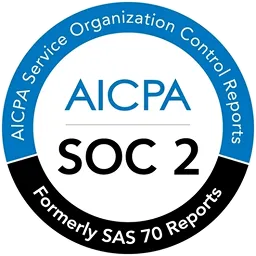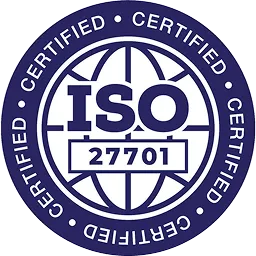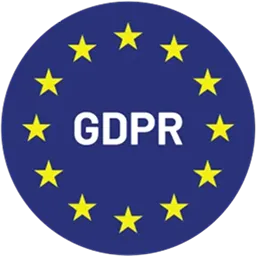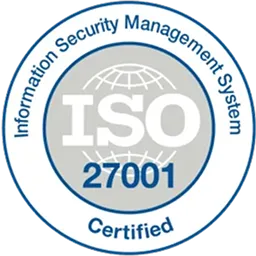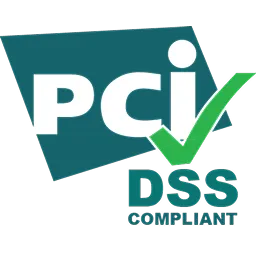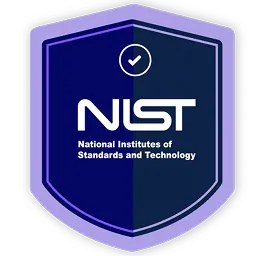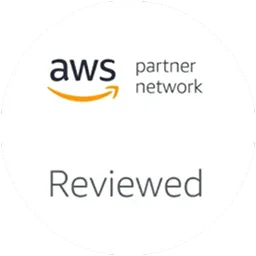Partners and other stakeholders will choose your organization to avail services, only when they know that the data they share with you is secured in all manners. So to prove your commitment towards data security, being CMMC compliance certified becomes crucial. But what is CMMC compliance? Let's find out.
The Cybersecurity Maturity Model Certification (CMMC) is a critical framework designed to ensure the security of sensitive data within the Department of Defense's (DoD) supply chain. Organizations aiming to work with the DoD must demonstrate compliance with the CMMC's stringent cybersecurity standards, ranging from Level 1 (basic cyber hygiene) to Level 3(expert cyber hygiene). This article explores the importance of CMMC compliance, its key requirements, and how businesses can achieve and maintain it for successful partnership with the DoD. Let's dive in.
What Does CMMC Compliance Mean?
CMMC, or Cybersecurity Maturity Model Certification, now known as CMMC 2.0, is a U.S. Department of Defense (DoD) program applicable to Defense Industrial Base (DIB) contractors. It establishes a unified standard and certification model to protect sensitive information properly.
So, whether you are dealing with Controlled Unclassified Information (CUI) or Federal Contract Information (FCI), compliance with CMMC standards is necessary.
Note: Meeting CMMC compliance cannot be achieved once and forgotten about. Rather, it's an ongoing process; organizations' teams must continually update and improve cybersecurity measures to maintain compliance with CMMC requirements.
Furthermore, within the CMMC framework, companies need to follow different practices and processes depending on the level of certification they aim for. The requirements become more complex and stringent as the certification level increases.
What are these compliance levels?
Levels Of CMMC Compliance
There are main 3 levels of CMMC compliance certification, which includes:
# Level 1 exhibits \"Basic Cyber Hygiene\" or Foundational Cyber Hygiene
# Level 2 exhibits \"Intermediate Cyber Hygiene or Advanced Cyber Hygiene
# Level 3 exhibits \"Good Cyber Hygiene\" or Expert Cyber Hygiene
But what requirements need to be met to obtain these certifications?
CMMC Compliance Requirements
To meet CMMC compliance, you need to fulfill the following requirements for each level of certification:
Level 1 Certification Requirements
Level 1 is the foundational tier in the CMMC 2.0 framework, which focuses on safeguarding federal contract information (FCI).
Organizations need to implement 17 basic cybersecurity practices to attain this certification, primarily derived from FAR Clause 52.204-21. This level's main focus is on establishing fundamental cyber hygiene practices.
However, unlike higher levels, process maturity is not required at this tier. This means organizations only need to carry out the specified practices.
Note: Level 1 is made for companies handling FCI (this data is not intended for public release), ensuring important safeguarding measures are in place.
Level 2 Certification Requirements
Level 2 concentrates on safeguarding Controlled Unclassified Information (CUI) and aligns with the NIST SP 800-171 framework, covering all 110 security requirements from this standard. So, to attain this certification, organizations need to implement security best practices and establish and document well-developed processes to guide their cybersecurity efforts.
The goal is to attain a level of \"good cyber hygiene\" by integrating both technical and managerial controls to safeguard sensitive information.
Note: Level 2 is for organizations that manage CUI, and they must undergo evaluation conducted by a CMMC Third-Party Assessment Organization (C3PAO).
Level 3 Certification Requirements
Level 3 emphasizes on addressing advanced persistent threats (APTs). So, to attain level 3 certification, organizations need to create, maintain, and allocate resources for a plan that oversees the implementation of their cybersecurity practices. They need to ensure that all the security requirements outlined in NIST SP 800-171 and an additional subset of security controls from NIST SP 800-172 are met without fail.
Note: Level 3 is designed for companies who are handling Controlled Unclassified Information (CUI) for high-priority DoD programs.
But what benefits will an organization get by adhering to CMMC compliance?
Benefits Of Adhering To CMMC Compliance
Below are 3 major benefits of adhering to CMMC compliance:
- Improves Security & Risk Management: By adhering to CMMC compliance, organizations' teams can set security measures that will further help reduce the risk of cyberattacks, data breaches, and other security incidents. This protects sensitive information, safeguards the organization's reputation, and maintains financial stability.
- Competitive Advantage in Government Contracts: Many government agencies mandate CMMC certification for contractors, so compliant organizations gain a competitive edge in securing government contracts. This certification serves as evidence of the organization's commitment to cybersecurity, making them more attractive candidates for government partnerships.
- Strengthened Trust and Relationships: Achieving CMMC compliance demonstrates a dedication to protecting data and sensitive information. This helps build trust among partners and stakeholders, enhance the organization's reputation, and build long-lasting business relationships.
But who exactly needs to comply with CMMC compliance? Who will get benefited by adhering to CMMC compliance?
Who Needs CMMC Compliance Certification?
Here's a list of types of entities that need to have CMMC compliance certification in place:
- Organizations Bidding On DoD Contracts: If your company wants to bid on or renew contracts with the Department of Defense (DoD), you need CMMC certification. This applies to all sorts of companies, whether they make physical products, software, or provide services.
- Subcontractors Of DoD Contractors: If your company works with primary DoD/defense contractors, you also need CMMC certification. This ensures the whole supply chain is secure, which is really important for defense work.
- Meeting DFARS & NIST Standards: If your company must follow DFARS 252-7012 and NIST 800-171 standards, getting CMMC certified ensures that you're meeting these rules.
- Security Providers & Assessors: It's important to check if the company assessing your security is approved by CMMC. Their status can affect how you get certified.
Now that you know the benefits of adhering to CMMC compliance and who needs to be verified, let's explore the steps you need to implement to successfully comply with CMMC compliance.
CMMC Compliance Checklists
Here is the CMMC checklist, which includes the necessary steps that you need to follow to achieve CMMC compliance successfully:
1: Evaluate The Suitable CMMC Level For Your Company
Before starting your CMMC compliance journey, it's important to review the contract terms with the Department of Defense (DoD) to determine which CMMC level is applicable among the three. Also, you can evaluate the sensitivity of the data your organization handles while determining the appropriate CMMC level.
Note: The type of controlled unclassified information (CUI) your organization handles influences the requirements and investments needed to safeguard it.
2: Conduct A CMMC Self-assessment To Measure Your Preparedness For CMMC Compliance
After identifying the necessary CMMC level for your organization, the next step is to self-evaluate your organization's cybersecurity status.
This assessment should examine your cybersecurity maturity, including your policies and procedures, access control, network security, and incident response capabilities.
3: Utilize Existing Cybersecurity Frameworks to Simplify CMMC Compliance Efforts
While obtaining CMMC certification may seem challenging, organizations can simplify the process using established frameworks and certifications aligning with CMMC requirements. Moreover, CMMC shares much in common with other popular cybersecurity frameworks that follow regulations.
One such framework is the National Institute of Standards and Technology Cybersecurity Framework (NIST CSF), which offers guidelines and best practices for managing cybersecurity risks. By following the CSF, organizations can align their cybersecurity practices with CMMC requirements, making the certification process smoother and more straightforward.
Other frameworks and certifications, such as FedRAMP, FISMA, ISO 27001, and NIST SP 800-171, can also assist in achieving CMMC certification. Using these resources helps meet CMMC requirements and enhances overall cybersecurity readiness, demonstrating compliance with CMMC standards.
4: Create A Plan of Action And Milestones (POA&M) For CMMC Compliance
A Plan of Action and Milestones (POA&M) is an important document that outlines how an organization will tackle its cybersecurity weaknesses and shortcomings. Also these documents are important to demonstrate that the organization is meeting CMMC requirements. But what is involved in POA&M?
Developing a POA&M involves 3 major steps:
- First, once you've determined the appropriate CMMC level, identify the gaps between your current cybersecurity practices and what's needed for certification. This requires thoroughly reviewing your organization's policies, procedures, and technical measures.
- Next, prioritize the areas that need attention most urgently. Then, set up a timeline for each task, with clear deadlines for completion. Assign responsibilities to team members and make sure they understand what's expected of them.
- Finally, keep detailed records of progress toward compliance and regularly update the POA&M as needed. This structured approach ensures that your organization stays on track for CMMC compliance.
5: Choose A CMMC Third Party Assessor Organization
After finishing your self-assessment, it's time to pick a CMMC Third-Party Assessor Organization (C3PAO). These organizations are authorized by the Accreditation Body (AB) to evaluate CMMC compliance. The C3PAO you choose will evaluate how well your organization follows the CMMC framework. But with many options available, it can be difficult to choose the right one.
So, to help you decide which can be an ideal C3PAO for your organization, we've outlined a few factors to consider:
- Go through the CMMC-AB website to get a list of authorized C3PAOs.
- Find a C3PAO that has experience in your industry.
- Verify the C3PAO's accreditation status.
- Request for references and feedback from past clients.
- Review their pricing structure.
However, you need to understand that achieving CMMC certification demands significant investment. Therefore, companies need to budget appropriately. But what type of expenses does it incur? Let's find out.
CMMC Compliance Cost
Organizations can expect to have expenses associated with cybersecurity assessments, remediation actions, and ongoing maintenance.
Also, different factors can influence the CMMC compliance cost, such as:
- Certification costs, which vary depending on the chosen CMMC level.
- Expenses associated with hiring a C3PAO, which can vary based on their expertise and accreditation status.
- Ongoing maintenance expenses, which contribute to overall compliance costs.
So, on average, you can expect an expense of $100,000. Here's a breakdown of the cost to better understand and plan your budget accordingly.
However, expenses associated with CMMC compliance can be minimized to an extent by implementing an access review tool like Zluri that can easily streamline the entire certification process. What is Zluri? What Does it do?
Minimize The Certification Cost By Implementing the Access Review Solution
While certain expenses tied to CMMC certification are unavoidable—like assessments, annual affirmations, and hidden costs such as corrective actions and external audits—there are ways to minimize overall expenses:
- Avoid relying on third parties for tasks like access monitoring and internal audits.
- Ditch manual methods for managing the certification process.
Instead of outsourcing these tasks, investing in an efficient automated solution like Zluri is a smart move. Here's why:
Easy to Use
Zluri offers an intuitive access review solution that doesn't require coding, making it simple for your internal team to operate without the need for external experts.
Automated Certification Process
Zluri's access review solution automates the entire access certification process, from analyzing access rights to taking necessary actions to protect data.
How does it work?
Below we have shown how you can automate Salesforce access review process with Zluri:
Enforcement of Access Controls
To further enhance data security, Zluri enforces access controls like RBAC, PoLP, JIT, ABAC, and more. This ensures that employees only have the access necessary for their roles, reducing the risk of data breaches.
Documentation of Certification Process
It documents every action taken during the certification process. These records demonstrate that your organization has taken necessary steps to protect data and can be presented to auditors as evidence for obtaining CMMC compliance certification.
Comply With CMMC To Show Your Commitment Towards Data Security
In conclusion, within the CMMC framework, organizations need to adhere to different levels of certification, each mandating fulfillment of stringent security requirements. By complying with these CMMC standards, organizations benefit from improved security and risk management, gain a competitive edge in government contracts, and strengthen trust with stakeholders.
However, achieving and maintaining CMMC compliance requires careful planning, self-assessment, alignment with established cybersecurity frameworks, and engagement with authorized C3PAOs.
While the costs associated with CMMC compliance can be significant, but tools like Zluri can help streamline the certification process and minimize expenses. Also, will help ensure organizations meet their cybersecurity obligations efficiently and effectively.






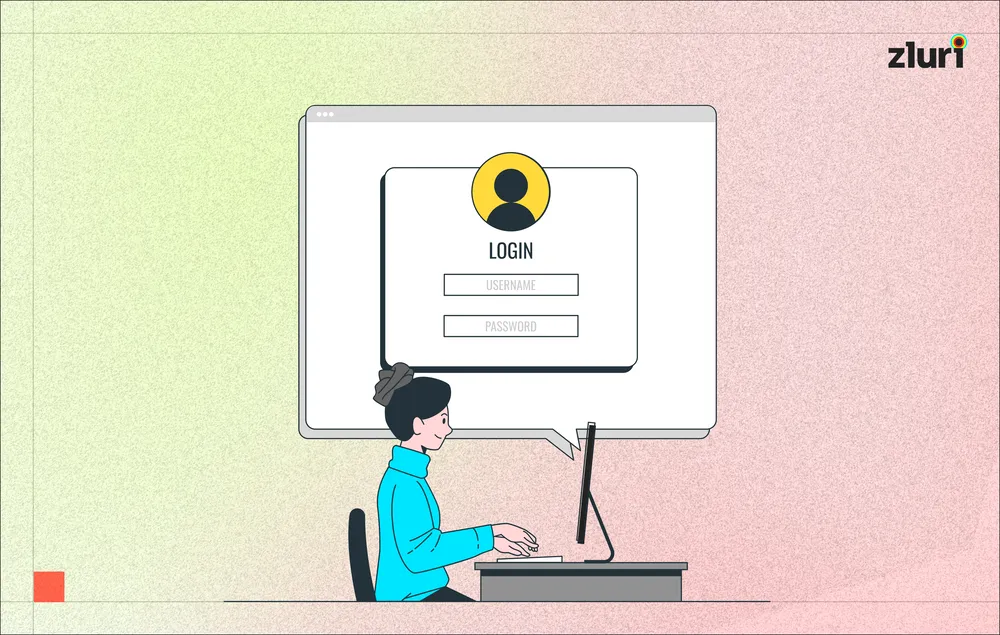
.png)

.svg)



